Apr 2, 2024 12:59 PM
Saxophonist, Sonic Explorer Casey Benjamin Dies at 45
Casey Benjamin, the alto saxophonist, vocalist, keyboardist and producer who stamped his distinctive sounds on the…
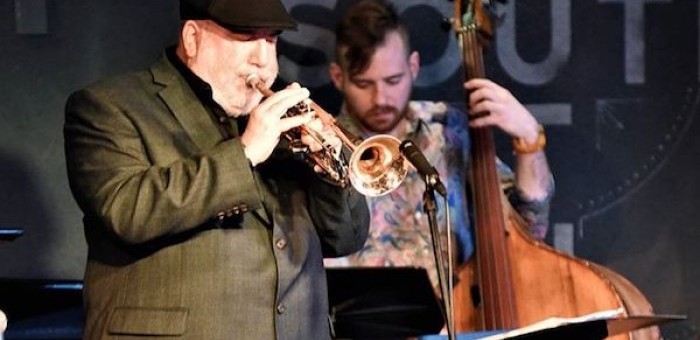
Randy Brecker (left), a Philadelphia native, performs at the first annual Philadelphia Jazz Festival, which ran from April 23–30.
(Photo: KT Jones Photography/Philadelphia Jazz Festival Instagram)As Orrin Evans pointed out in the days leading up to the inaugural Philadelphia Jazz Festival April 23–30, Philly’s continuing jazz legacy is such that it’s possible to assemble an impressive lineup wholly from musicians who hail from or have significant ties to the city.
That wasn’t entirely the case with the week-long festival, which featured such notables as Terri Lyne Carrington, Steve Turre, Wayne Escoffery, Ingrid Jensen, ELEW and Bob Dorough. But the program was liberally stocked with major artists who have or continue to call Philly home: besides Evans and Gerald Veasley, both of whom helped book the fest, there was Randy Brecker, Joey DeFrancesco, Lil John Roberts, Jaguar Wright and a tribute to the legendary Ortlieb’s Jazzhaus jam sessions featuring local legends Mickey Roker and Bootsie Barnes.
The festival was the brainchild of local restaurateurs Robert and Ben Bynum in conjunction with Philadelphia’s Office of Arts, Culture and Creative Economy, taking place largely in the Bynum brothers’ four establishments: South (the city’s newest dedicated jazz room), as well as Warmdaddy’s, Paris Bistro and Relish. But events sprawled out across the city in a cooperative spirit, involving Chris’ Jazz Café, the Philadelphia Clef Club, World Café Live and other venues. It helps end a long dry spell for jazz festivals in the city that began with the demise of the Mellon Jazz Festival more than a decade ago, and overlaps trombonist Ernest Stuart’s single-day Center City Jazz Festival, now in its sixth year.
Following on the news that he’s stepping into Ethan Iverson’s shoes in The Bad Plus, Evans found himself in a number of situations throughout the week at South, serving as almost a house pianist for the festival. His trio accompanied Brecker on the fest’s opening night and was a member of Escoffery’s quintet, paying tribute to Miles Davis and John Coltrane with Ingrid Jensen serving trumpet duties. He also stepped more into the spotlight for two of the week’s more notable shows: a set by his own Captain Black Big Band with Steve Turre as special guest, and a one-time-only “Philadelphia All-Star Band” that teamed Evans with Joey DeFrancesco, Lil John Roberts and bassist Alex Claffy, with an appearance by singer Madison McFerrin.
The unique piano-organ line-up of the All-Star Band allowed for spirited interactions between the two keyboardists. A highlight of both evening’s sets came via David Bowie’s “Kooks,” which Evans recorded on his latest album, #knowingishalfthebattle, and which has since become a staple of his shows regardless of ensemble. Stripped down to a trio for the tune, with Roberts holding down a taut groove, Evans and DeFrancesco engaged in a playful back-and-forth that became at various moments a game of Simon Says, dueling quotations, melodic one-upmanship and a captivating conversation in which the two finished each other’s thoughts.
The chemistry of the three veterans had its roots in their high school days, when all three were at various times members of the All-City Jazz Band (Roberts being the bridge between the older DeFrancesco and the younger Evans). The raucous laughter coming off the stage at South made the show feel like a joyous reunion, while the presence of McFerrin—whom Evans mentored through a local school program and whose famous father, Bobby, was in the audience—added a touch of torch-passing to the occasion. The singer essayed a soulful original, “Fallin’,” as well as a Claffy arrangement of Charlie Chaplin’s “Smile.” Throughout the set, the presence of the organ brought out the church in Evans’ playing, while DeFrancesco took the opportunity to indulge his inner Miles with more trumpet playing than usual, blowing muted solos on an impromptu “If I Were A Bell” and a New Orleans-inflected “All Blues.”
The following night, Evans convened a pared-down nine-piece version of his Captain Black Big Band in the same room, with one of the two trombone chairs taken by special guest Turre. The evening kicked off with trumpeter Josh Lawrence’s hard-charging “Presence,” its muscular hard-bop churn eliciting a sharp, jabbing solo from Turre. Saxophonist Victor North led into Evans’ “Explain It To Me” with a soprano solo full of cascading runs, tart honks and sudden swells, while altoist Robert Landham later turned his intro to Stevie Wonder’s “Overjoyed” into a virtuoso set of variations on the song, so show-stopping that only the confidence of Joanna Pascale’s sultry vocal saved the full-band version from seeming redundant.
Pascale was one of two vocalists to guest with the band that night, with Milton Suggs contributing blissful, gospel-tinged tones to “Don’t Bet Against Me,” a tune that Evans produced for singer M’Balia, and a stirring version of Chris Whitley’s “Dislocation Blues.” Evans also took a turn on the mic, leading a whispery audience singalong of “Easy Now” in honor of his late father, whose 79th birthday would have been the next day.
Turre took to the setting with vigor and enthusiasm, unleashing bluesy, plunger-muted moans on a Pascale-sung “All Too Soon” and spitfire, quicksilver lines on the second-set opener, “The Scythe,” ending his solo with a hint of “It Don’t Mean a Thing (If It Ain’t Got That Swing)”—a sentiment that the Captain Black Big Band, anchored by the rhythm section of bassist Madison Rast and drummer Anwar Marshall, had no problem living up to. As always with Turre, a highlight of both sets came when he reached into his bag of conch shells, adding harrowing moans to the spiritual lament of “Dislocation Blues” or paying homage to his mentor, Rahsaan Roland Kirk, by playing two shells at once over a Latin-tinged blues.
These shows alone, among the many that took place over the course of the week and into a packed weekend to conclude Jazz Appreciation Month in the city, were vibrant examples of the kind of jazz that could only come out of Philadelphia. It was a fine start to what will hopefully turn into an annual tradition. DB
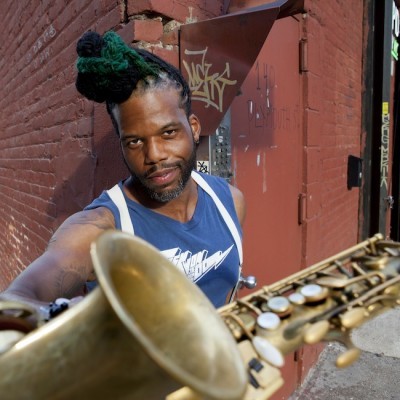
Benjamin possessed a fluid, round sound on the alto saxophone, and he was often most recognizable by the layers of electronic effects that he put onto the instrument.
Apr 2, 2024 12:59 PM
Casey Benjamin, the alto saxophonist, vocalist, keyboardist and producer who stamped his distinctive sounds on the…
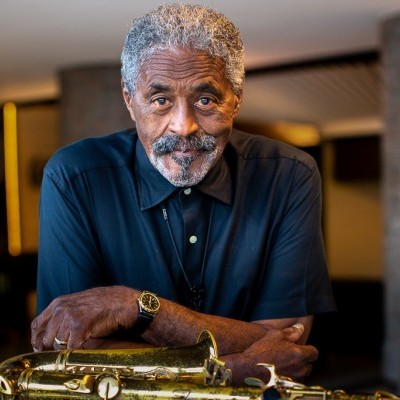
“He’s constructing intelligent musical sentences that connect seamlessly, which is the most important part of linear playing,” Charles McPherson said of alto saxophonist Sonny Red.
Feb 27, 2024 1:40 PM
“I might not have felt this way 30 to 40 years ago, but I’ve reached a point where I can hear value in what people…
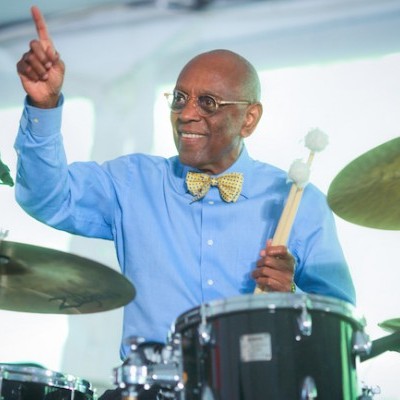
Albert “Tootie” Heath (1935–2024) followed in the tradition of drummer Kenny Clarke, his idol.
Apr 5, 2024 10:28 AM
Albert “Tootie” Heath, a drummer of impeccable taste and time who was the youngest of three jazz-legend brothers…
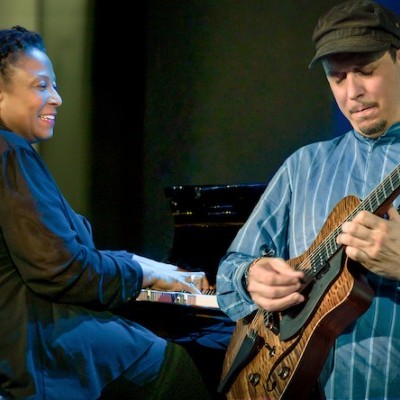
“Both of us are quite grounded in the craft, the tradition and the harmonic sense,” Rosenwinkel said of his experience playing with Allen. “Yet I felt we shared something mystical as well.”
Mar 12, 2024 11:42 AM
“There are a few musicians you hear where, as somebody once said, the molecules in the room change. Geri was one of…
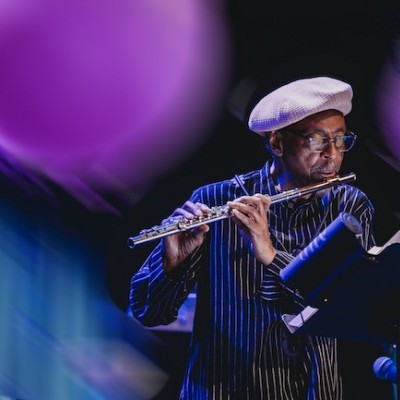
Henry Threadgill performs with Zooid at Big Ears in Knoxville, Tennessee.
Apr 9, 2024 11:30 AM
Big Ears, the annual four-day music celebration that first took place in 2009 in Knoxville, Tennessee, could well be…